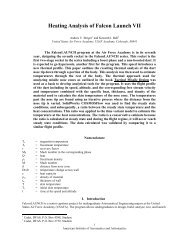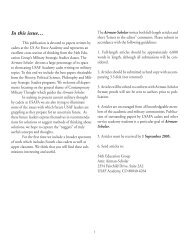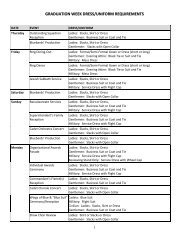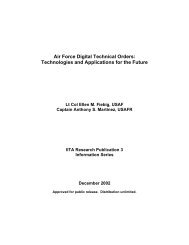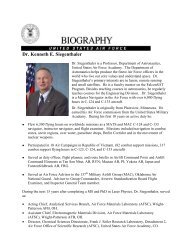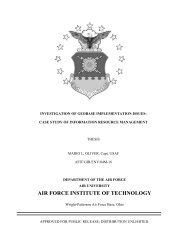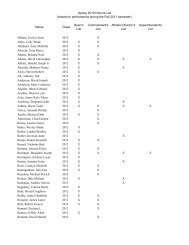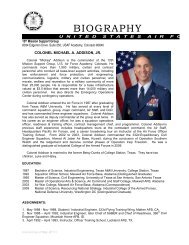the rollback of south africa's biological warfare program
the rollback of south africa's biological warfare program
the rollback of south africa's biological warfare program
Create successful ePaper yourself
Turn your PDF publications into a flip-book with our unique Google optimized e-Paper software.
Debates continue today about <strong>the</strong> veracity <strong>of</strong> <strong>the</strong> claims that former<br />
Rhodesian forces, with possible South African involvement, planted anthrax<br />
spores in grain fed to cattle in guerrilla-held areas. An anthrax epidemic that<br />
struck Zimbabwe’s cattle in <strong>the</strong> early 1980s afflicted nearly 10,000 cattle. This<br />
long-standing claim was published in 1999 in a book, issued in tandem with a<br />
BBC Panorama documentary on <strong>biological</strong> <strong>warfare</strong>, Plague Wars. 25 Officials<br />
<strong>of</strong> <strong>the</strong> Zimbabwean veterinary service repeated this allegation in 1999. They<br />
noted that <strong>the</strong> strain <strong>of</strong> bacteria responsible for <strong>the</strong> outbreak was not native to<br />
Zimbabwe and immediately alleged that <strong>the</strong>se incidents could be linked to<br />
South Africa’s past chemical and <strong>biological</strong> <strong>warfare</strong> <strong>program</strong>. The current<br />
Zimbabwean government continues to emphasize that new reports <strong>of</strong> anthrax<br />
are <strong>the</strong> result <strong>of</strong> past South African involvement in <strong>the</strong> Rhodesian civil war. 26<br />
These allegations could not be substantiated. 27<br />
The continuing debates about whe<strong>the</strong>r allegations related to past use <strong>of</strong><br />
anthrax as a <strong>biological</strong> weapon highlight <strong>the</strong> fact that many <strong>biological</strong> agents<br />
have long-term effects that are difficult to verify. This is especially true for<br />
allegations <strong>of</strong> <strong>the</strong> use <strong>of</strong> such agents as anthrax that can be ei<strong>the</strong>r manufactured<br />
or natural in origin. The continuing controversy about whe<strong>the</strong>r anthrax was in<br />
fact used more than two decades later also suggests that allegations <strong>of</strong> BW use<br />
can be used as both a psychological weapon to intimidate civilians and rebels<br />
in a particular area and as a political dis-information tool <strong>of</strong> unpopular<br />
governments. 28 In 1993, <strong>the</strong>re was an outbreak <strong>of</strong> cholera in Zimbabwe. Dr.<br />
Timothy Stamps, <strong>the</strong> Zimbabwean Minister <strong>of</strong> Health, told Tom Mangold <strong>of</strong><br />
BBC Panorama that he believed this outbreak was <strong>the</strong> result <strong>of</strong> ano<strong>the</strong>r BW<br />
attack since it seemed to be a controlled outbreak lasting three months and was<br />
eliminated in seven months. 29<br />
SADF experienced similar problems and variable results in <strong>the</strong>ir efforts to<br />
counter and possibly use CBW agents in military operations in Angola,<br />
Namibia, and Mozambique, as well as inside South Africa. Several CBW<br />
10




